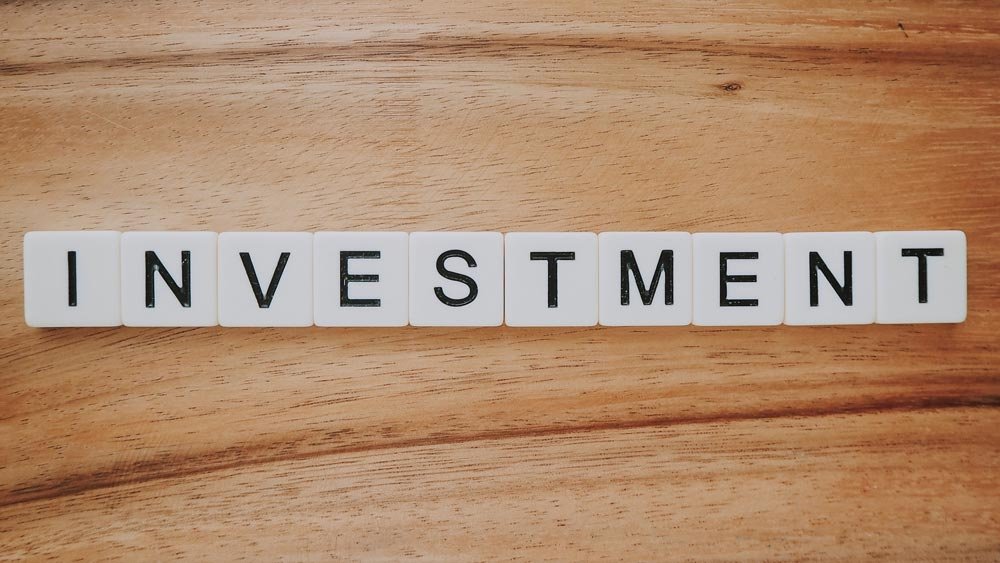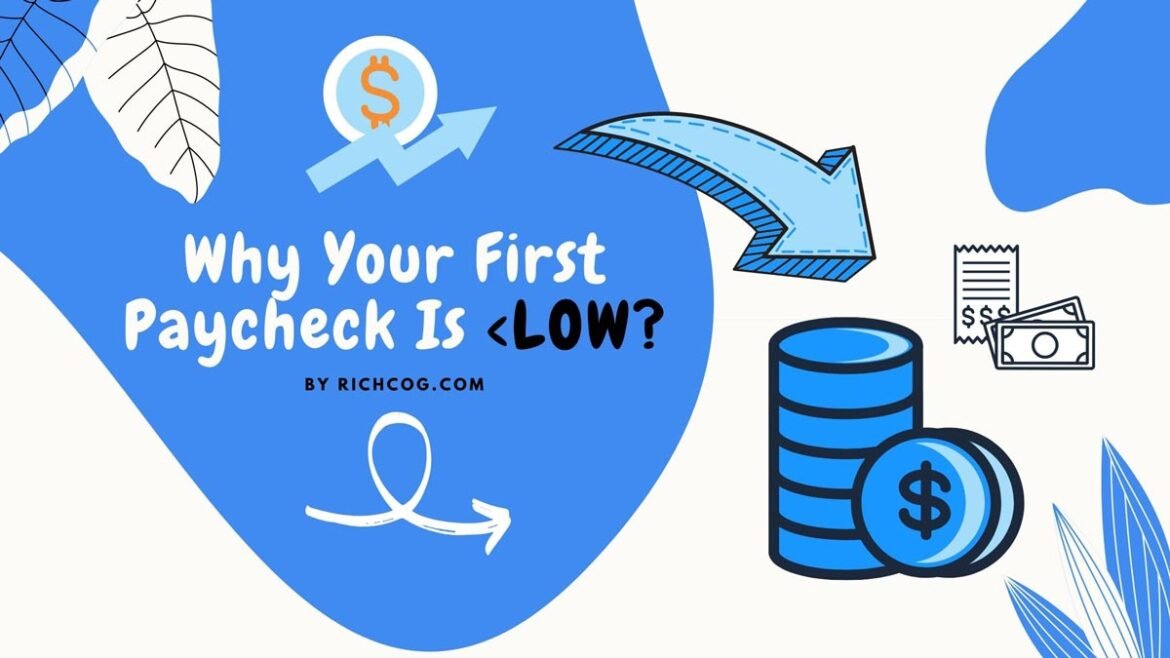Woh! Woh! Woh!
You just got your first paycheck/salary, right?
Well, congratulation on your first-ever financial achievement, feeling good?
Maybe not really! Because after getting your first ever salary, you might be thinking, why is my first paycheck so low? Have I done something wrong?
Also thinking, why is my first paycheck less, even though, when you did your agreements with the company, It was much higher than you got this day.
Are they stealing money from you? Or you got SCAMMED!
Well absolutely not.
In this article, we are going to talk about everything that you want to know after getting your first salary on hand.
We will also give you some useful information about how you can use your first salary to live a better future.
So let’s discuss why is your first paycheck is so less.
Why Is My First Paycheck So Low? [Truth Behind Your Low Salary]
Before I tell you, why is your first paycheck low at this moment.
Again, congratulations on having a job. Finally, you do have some sort of income source.
Without people like you working and paying taxes, the 47% of Americans who pay zero income tax today would be far worse off.
Consider it to be a form of forced charity.
As for reducing the bite, you might look into your employer's 401(k) plan or start an IRA. The money you put into these retirement savings accounts is not taxed until you withdraw them when you retire.
And yes, your vote does count.
There are some interesting charts here about where your federal tax money goes if you'd like to better focus your outrage.
Yes, it's normal to be surprised at how much of your paycheck is withheld for various purposes.
Getting upset, though, is counterproductive.
The best thing to do is to look closely at those deductions and make sure the right amount is being withheld. This will give you at least some sense of control.
Also, if you're just starting to earn money in September, you will almost certainly get a sizable refund after you file your tax return in early 2022.
This is because your withholding is based on what your income would be if you'd worked a full year.
For instance, you may be making $120,000 a year, but if you started September 1 you'll earn only $40,000 in 2021.
You'll probably pay little or no income tax, depending on your filing status and deductions.
Another Note: It only seems low because it looks like you started working in the middle of a pay cycle, so they're only paying out the amount of hours that fell within that particular pay period. If there are any other hours that are unaccounted for, they will be on your next pay cycle.
Not an accountant, but it's simpler for keeping the numbers in line if they do it that way. Don't worry, pretty soon you'll strike a steady pay rate and you'll find that it almost never feels like enough. lol, welcome to the workforce!

Why is my first paycheck of the year so low?
Paying taxes and seeing the amount is definitely a painful moment and ripe with opportunities for personal growth.
Believe it or not, police and roads really do cost that much, along with sidewalks, schools, public parks, libraries, museums, homeless shelters, and children’s services.
Along with that are foreign wars, domestic security, student loan programs, university funding, and a million and five other things that you may or may not agree with, depending on your personal outlook.
While voting might change *how* your tax dollars get spent, it is unlikely to significantly change the *amount* that is deemed to be your “share”.
There are many opportunities for you to lower your taxes that you will encounter along the way, but this is not the proper forum to list them out.
>> Things To Consider >>
- You will get a big refund early next year, but not the year after. That’s because accounting programs assume that you make your salary for the whole year, while in reality, you will be making it 1/3 of the year. The first year, your taxes should be a lot lower, just like your income.
- Yes, it made you sick to my stomach to pay 13% off your first measly paycheck. Now you pay upwards of 40%, and you are just fine with that. That’s because your income is almost x20 higher. The smaller your income, the worse the taxes hit you, even if the % is lower.
How do I start investing, right from my first salary?
Now,
The biggest mistake most people make when they start earning is spending the money first instead of saving it.
In my case, I was spending even what I hadn’t earned using my credit card. That was the biggest mistake that I have done in my early 20s.
Look at the following 2 equations:
1) Income — Expenses = Savings
2) Income — Savings = Expenses
Mathematically, both the equations are exactly the same.
But, if you follow the 2nd equation in your life, the whole scenario changes. Whenever you save money first before spending it, you are going to do well financially.

To make it happen, I recommend that you do the following:
- Keep necessary expenses below 50%:
- Calculate how much money you spend on things like rent, food, internet, commute, etc. These are things that are absolutely necessary for your sustenance. You cannot avoid them. In most cases, these expenses should not exceed more than 50% of the in-hand salary. In the case of higher incomes, necessary monthly expenses should be even lower than 50% of the in-hand income.
- Invest at least 25% of the salary:
- This is the most important step. You must make it a rule to invest at least 25% of the money for the future. And nowadays, you can’t even give the excuse that you can’t keep track of it every month ☺ All you have to do is invest through Systematic Investment Plans (SIPs) in mutual funds. If you get a salary on the 1st of the month, keep the SIP date as the 3rd or 4th of the month so that the money gets invested before you get a chance to spend it.
- Enjoy life with the rest of the 25%:
- As much as it’s important to invest for the future, it’s important to live in the moment as well. I’d never advised compromising too much on the present to invest for the future. You must spend on things you like to do, pursue your hobbies, gift for your loved ones, traveling (not in times of corona through), etc. After all, being happy is the most important thing in life.
The thing is, once you follow this simple budget and let your money get invested automatically through SIPs, you will be able to spend your money in the present without any guilt.
Also, if you happen to use a credit card for whatever reason, your expenses using your salary plus credit card balance should still not exceed the budget.
Having a credit card doesn’t give us the license to spend more than what we earn.
Note: This budget is meant only for people who are starting to earn. As you grow older and earn a higher salary, the investment ratio should also increase.
Why are salaries in the UK lower than in the USA?
In the UK,
There are far more services are provided to taxpayers which are free at the point of use.
In the USA,
None of that is provided.
In the UK,
Pay is lower because tax rates are a couple of percent higher to fund those services.
In the US,
Taxes are lower because tax rates are a couple of percent lower, and you have to pay for everything out of your own pocket.
It’s a pretty simple premise.
You can see this contrast much more clearly if you look at other European countries and compare them against the USA — slightly higher tax rates, slightly lower wages.
They have much more services provided to taxpayers free at the point of use, higher standards of living, happier citizens, higher quality of services provided to taxpayers (again, free at the point of use), higher quality of life, and so on.

It’s like there’s a definitive cultural difference:
Europeans acknowledge that living as a part of a society is important and that that society must be rewarding for people to be a part of, and that quality of life is important, and that government exists to serve the people who pay for it.
Whereas, Americans acknowledge that the individual is the paramount/only concern of every citizen, and it’s their sole responsibility to take care of everything.
Obviously, these statements are sweeping generalizations and there will always be exceptions that prove the rule, but that is by and large the main difference.
- Europeans work together for the benefit of everyone
- Americans work alone for the benefit of themselves
What is the best way to spend your first salary?
What I have done — By Anonymous
It was another usual day, but an unexpected message at 6:50 AM disturbed my sleep. To my astonishment, it was my salary credit details (it was totally unexpected).
Was excited but had to hurry to reach the office on time.
All-day long didn’t have time to think of what to do with the first earnings (engineering jobs are too hectic irrespective of whether you are newly graduated or experienced).
On the way home from the office,
I saw a group of small children picking up the plastic bottles and waste in order to earn, and suddenly an idea struck, and I gathered all of them and took them to a nearby DOMINO’S.
Had a word with the Manager regarding the plan, and he smiled, applauded, and agreed.
Each pizza bite helped them to smile and express themselves freely ….. we sat there for nearly 2 hours … sang songs … ate pizza with extra ketchup and all it ended up on a good note …..
>>This was how i celebrated #first_paycheck.
Final Thoughts
Well, at this point, I hope you already got the idea about why is your first paycheck low? & what you can do with your first salary,
Whether doing something good for others that gives you some sort of fulfillment, or start investing for a better future.
If you observe deeply, There are not the only single factor, so you might be thinking, like why is my first paycheck so low salary? Or why is my first paycheck of the year so low even after working for so long?
The company runs from the value that you provide, and the money that you'll get is from the work that you do for the company that hires you. Also, the organization runs through the government, so tax payment is understandable.
End of the day, that is also beneficial for everyone anyway.
So be patient.
